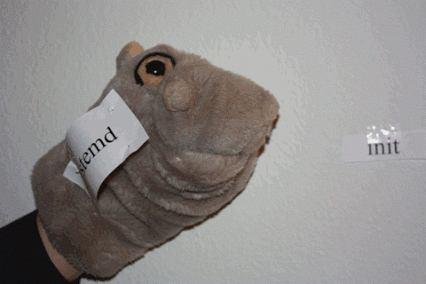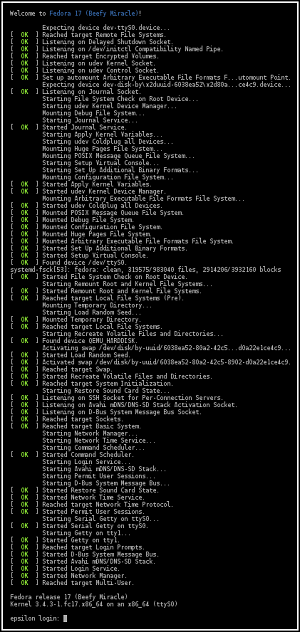News
Linux Rift over Systemd Widens with Threat of Debian Fork
- By David Ramel
- October 21, 2014
Anonymous Unix administrators have threatened to fork the popular Debian distribution of Linux and go their own way on further development unless granted their wish to have the open source project proceed without requiring systemd, a component so controversial it has led to death threats against its main contributor.
"To paraphrase Eric S. Raymond on the issue, we see systemd being very prone to mission creep and bloat and likely to turn into a nasty hairball over the longer term," the protesters said on a new debianfork.org Web site with the heading, "Shall we fork Debian?"
Systemd, as described by Wikipedia, "is a system management daemon designed for Linux and programmed exclusively for the Linux API. For systems using it, it is the first process that is executed in user space during the Linux startup process."
Debian is one of the most popular Linux distros (and the basis of Ubuntu, probably the most well-known package), stewarded by the nonprofit Software in the Public Interest Inc.
 An Anti-Systemd Animated GIF (source: Giphy.com)
An Anti-Systemd Animated GIF (source: Giphy.com)
The rogue protesters seem to have issues with Debian management, which precluded them from seeking change through more ordinary processes.
"We are excluded from voting on the issue: only few of us have the possibility to interact with Debian on a voluntary basis," the group said. "With lack of possibility we refer to our capacity to be involved in a complex bureaucratic system like the one governing Debian. While we respect this way of working, we think that our time may be better invested in new directions, also according to our expertise."
On the technical side of things, the group doesn't want to eliminate systemd altogether, but rather have it as an option, not a required replacement for its traditional counterpart, sysvinit.
"We like controlling the startup of the system with shell scripts that are readable, because readability grants a certain level of power and consciousness for those among us who are literate, and we believe that centralizing control services, sockets, devices, mounts, etc., all within one daemon is a slap in the face of the Unix philosophy." That philosophy is centered on "do one thing and do it well."
 [Click on image for larger view.]
Systemd Running on Fedora (source: Wikipedia)
[Click on image for larger view.]
Systemd Running on Fedora (source: Wikipedia)
The group urged community members to vote for Ian Jackson's mailing list "Re-Proposal - preserve freedom of choice of init systems," which he said is actually a re-proposal originally put forth last March, but not passed as a resolution by the Debian technical committee.
Systemd has proven so divisive among Linux developers that its main contributor, Lennart Poettering, recently detailed how he has received threats of violence and even been the subject of a movement to hire a "hit man" to deal with him.
The protest group pointed out that systemd has also spawned other protest movements, such as the "boycott systemd" Web site and a "systemd fork" named uselessd "with some good points and lots of lulz." Also, the group said, "An exit strategy is being elaborated at "The World After Systemd," and Wikipedia spells out some criticisms of the software.
"It represents a monumental increase in complexity, a slap in the face to the Unix philosophy, and its inherent domineering and viral nature turns it into something akin to a 'second kernel' that is spreading all across the Linux ecosystem," the boycott systemd site says.
According to Wikipedia, systemd is enabled by default or is expected to be so enabled in more than a dozen distros, including openSUSE, Red Hat Enterprise Linux (where Poettering works), Fedora and Ubuntu (planned, but not yet released).
With a fork, another distro may well be developed with the systemd daemon at best an option, if the upcoming "jessie" release of Debian ships with it.
"If systemd will be substituting sysvinit in Debian, we will fork the project and create a new distro," the protesters said. "We hope this won't be necessary, but we are well prepared for it."
About the Author
David Ramel is an editor and writer at Converge 360.